Knights of the Tie and Rail
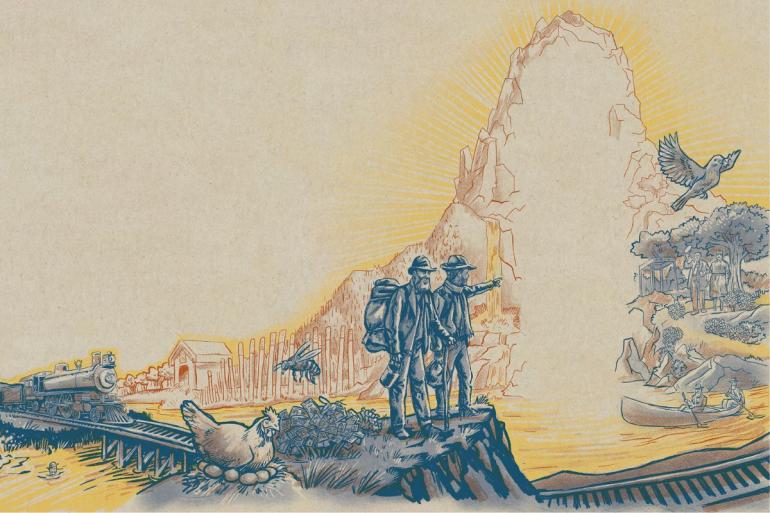
The invention and proliferation of the railroads changed American life (to say nothing of the rest of the world) suddenly and profoundly. As the network of rail lines spread like a web across the nation, we were able to imagine, for the first time, new ways of life.
On the rails, you could leave the harbor in New York and arrive in San Francisco in four days, a trip that would have taken six months by wagon. Beguiled by a heretofore unimaginable degree of mobility, Americans invented new words to describe the strange new kinds of people who followed in the wake of the railroad.
Names were given to ways of life that would have seemed fantastic at the dawn of the previous century: hobos, tramps, yeggs or yaggmen, bums, bindlestiffs, gentlemen of the road, knights of the tie and rail.
You didn't want to call a hobo a "bum." The latter connoted someone who didn't work, who lived on the dole. Work was at the center of the hobo's life. He traveled across the country to find it. A “bum” would probably be an inveterate alcoholic, desperate for his next drink, but a hobo was a distinguished traveler who may very well enjoy a drink, if you offered it to him, thank you, but wasn't about to beg for it. In fact, the concept of work was so essential to the hobo's métier (as was their disdain for those who didn't work) that they had a derogatory term for the idle rich: bums on the plush.
Thus, the hobos rode the rails and followed the work. As the Encyclopedia of American Railroads says, "This meant following the construction season. No hobo in his right mind would head to Montana on the Great Northern in December; winter was the time to head south, where buildings were under construction, or where there were crops to pick."
Life on the rails may have been an adventure, but it was never easy. More often, it was brutal.
The hobo's natural enemy was the railroad bull, private security employed by the railroads first to guard against train robberies and later to address the millions of transients trying to sneak into boxcars and freight trains. In many ways, railroad bulls were the late 19th and early 20th century equivalent to today's private military contractors. They were tough men, heavily armed, often veterans who had seen combat (in the Civil War, at first, and others as the years went on) and had no compunction whatsoever about employing their martial skills for pay. Many were deputized or granted quasi-law enforcement powers, such as the Union Pacific Railroad Police, who had their own badges.
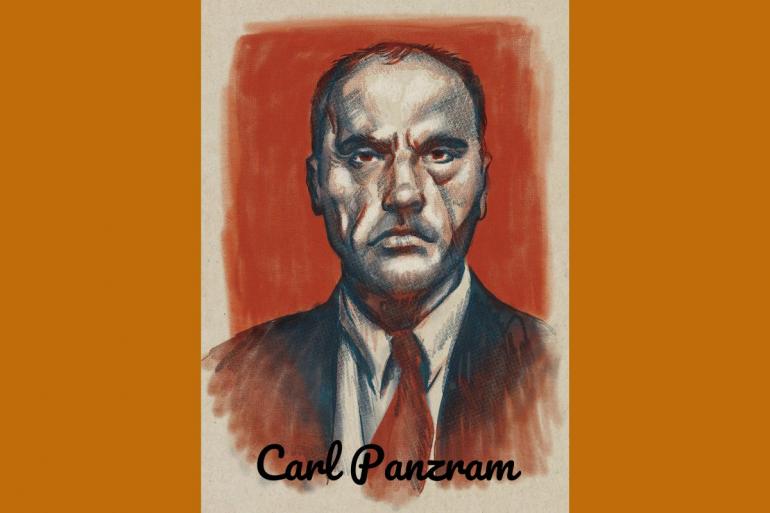
With lanterns, clubs and guns, they rousted the hobos out of boxcars, hurling blows, invectives, and sometimes bullets at them. Some railyards were reasonably lenient, turning a blind eye to the largely innocuous hobos looking for work. But some bulls were so zealous and violent in their pursuit of hobos that they seemed to take a sadistic pleasure in the carte blanche granted them to cause pain. Those "catching out" would hope to avoid bulls like Jeff Carr, who acquired a reputation for viciousness along the Union Pacific line. Having failed to catch Butch Cassidy and the Sundance Kid in an earlier phase of life, he consoled himself with murder. According to onetime hobo and crime writer Jack Black, Carr "is a railroad bull and he is bum simple—simple minded on the subject of killing bums. If you run he'll shoot you; if you stand he'll get you six months, and he'd rather you run." Carr would later serve as the inspiration for Ernest Borgnine's murderous Conductor in the film Emperor of the North, starring Lee Marvin.
Sometimes, however, it was the bull that got the horns. They might try to roust what they think is a garden variety vagrant and find someone like Carl Panzram, born in Minnesota before escaping reform school at 14 and riding the rails west to embark on a career of murder, church burning, and rape. Panzram was arrested in Butte, Miles City, and Helena before eventually committing at least 22 murders. But then, Panzram wasn't a hobo; he didn't like to work. Or rather, the work he enjoyed most was burglary, arson, robbery, murder, and rape. So let's not paint Panzram as a hobo; he was, at best, a particularly nasty yegg.
For all that, despite the risk of violence, starvation, and derailment, the thought of a place like Montana in summer must have sounded like a trip to the fabled "lemonade springs where the bluebird sings in the Big Rock Candy Mountains."
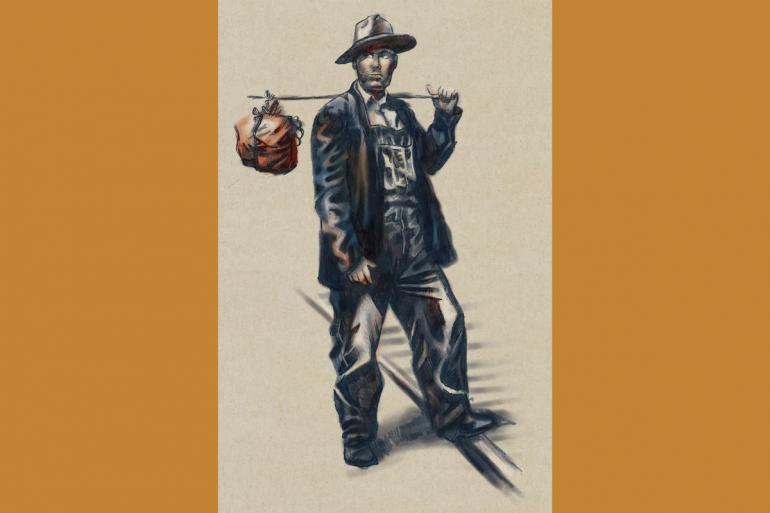
"Hobo jungles" developed in Lewistown, Helena, Billings, and countless other Montana towns. These were small camps where hobos would rest, tell stories, or have a drink while waiting for the next train. Often, someone would be cooking a meal for the assembled hobos—"slumgul - lion stew" or "mulligan stew," dishes that had no recipes and were always different. Someone would almost certainly be singing a song, perhaps the aforementioned "Big Rock Candy Mountain," made famous as a pop song by Burl Ives, but derived from an older and stranger song by the busker Harry McClintock. Ives's version, besides omitting cigarette trees and whiskey ponds, pointedly excludes the final line of McClintock's version, sung in the 1890s: "I've hiked and hiked till my feet are sore, I'll be god damned if I hike any more/ To be buggered sore like a hobo's whore on the Big Rock Candy Mountains."
When Burl Ives sings it, his voice recalling mid-century Christmas albums, it sounds like a children's song, but from a lyric like that, we might conclude that there were those for whom the hobo's life had, at some point, turned sour. Take another representative example from Woody Guthrie: "I Ain't Got No Home in This World Anymore."
As the centrality of the train to American life waned, the hobo began to disappear. You could still see them in the 1950s, maybe even the 1960s. And today, of course, there are still those who will catch out and head west. They might be bohemians, free travelers, adventurers, vagrants, homeless, unhoused individuals, or urban nomads, but hobos are few and far between.
Funny how things go—as soon as they start to disappear, they get canonized. Consider how many little boys of the 1930s-1960s wanted to be hobos. Look at those ghastly paintings of sad clown hobos—in fact, think of how much of the American version of the clown derives from the figure of the hobo. Witness Freddie the Freeloader, the bindle-clutching character Red Skelton played in hobo-drag on TV, who would do things like get arrested for sleeping in the library and have to be represented by his lawyer, Perry Masonjar.
The hobo was something between a joke and a dream, now that they were gone.
Well, not entirely gone. The National Hobo Convention is held every year in Britt, Iowa. Hundreds still catch the rails to get there, and every year a king and queen of the hobos are elected. Slumgullion stew is cooked and eaten, and stories exchanged.
Tonight, in Montana, someone is waiting, sipping a beer. Maybe at Hap's in Helena, or at any of the bars abutting any of the trainyards in our state. He or she is sitting and waiting for their train to come in so they can catch out.
When the bar closes, they'll have to move to the yard and try to find a dark corner to hide in until the train arrives. When it does, they better hope there's an open freight car, or, if they're really lucky, an unsecured engine car at the back of the train. Those have chairs, and fridges full of water, after all. But someone checks them every few hours, so you've got to be ready to move and maybe even disembark on the run.
It's a dangerous way to travel, but it's a hell of a ride.
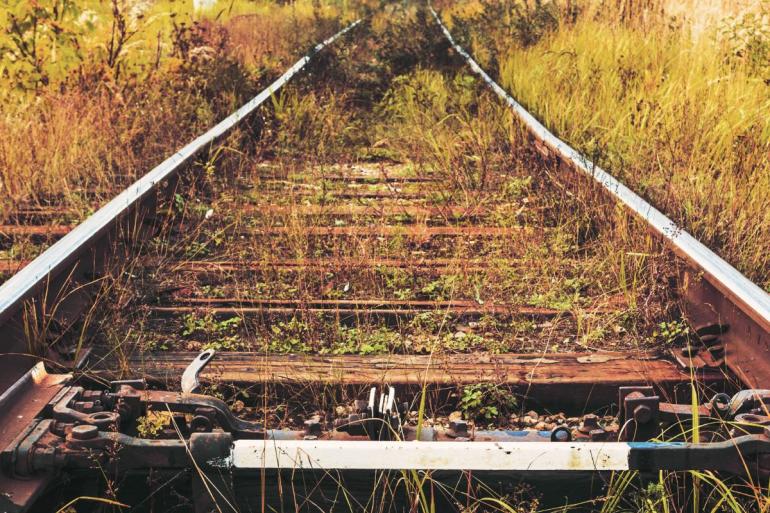
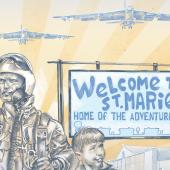
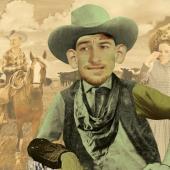
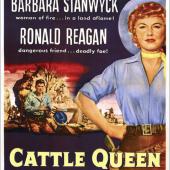

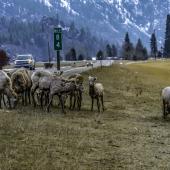

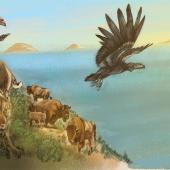
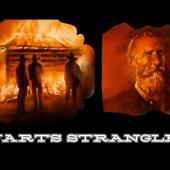
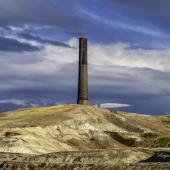
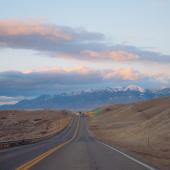
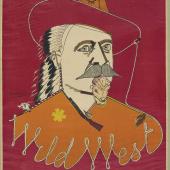
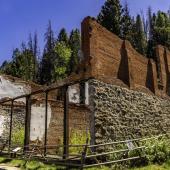
- Reply
Permalink